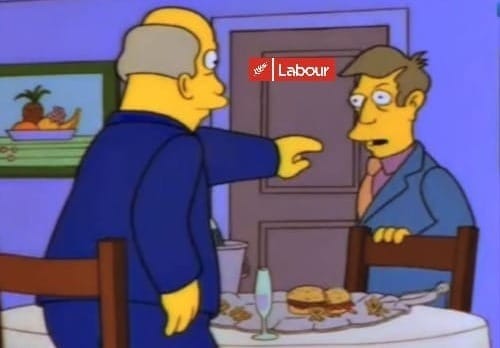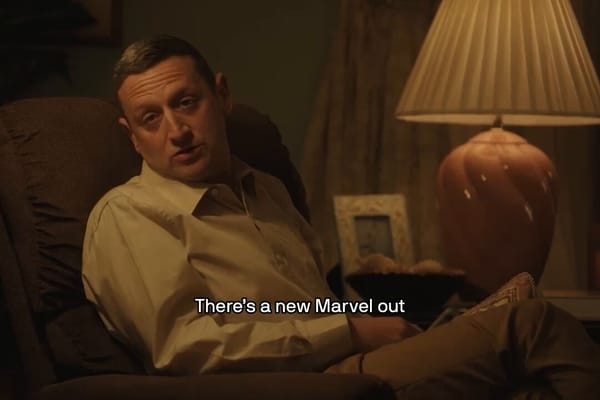Trouble in paradise? What is going on in New Zealand's largest Pākehā political party?

For the last couple of years, there's been one question on the minds of New Zealand politics watchers: can the Pākehā political movement survive Chris Hipkins? As someone with lived experience in Te Ao Pākehā, I'd like to unpack this question.
To an outsider looking in, kaupapa Pākehā politics can seem strange and inscrutible. Arcane laws around dress. Obscure turns of phrase. Performance that seems to signify nothing but itself. An untrained observer may look at this ecosystem, and throw up their hands in exasperation. Real heads know that Pākehā politics is much like a cheese roll: it may first seem to be alien and convoluted but it is actually tightly held together by its own twisted logic.
However, even the Press Gallery's most astute Pākehā-whisperers may struggle to comprehend the cultural phenomenon that is Chris Hipkins.
Labour is currently the largest of New Zealand's many Pākehā political parties and the only one that has only ever elected non-Māori leaders. It emerged out of the fractured Pākehā political landscape of the early-20th Century to occupy a space that roughly maps onto the centre-left of the political spectrum. One might assume that this makes it a natural ally for parties on its left like Te Pāti Māori and the Greens, but Pākehā solidarity is such that Labour MPs will often end up aligning themselves with their skinfolk in the National Party. To say Labour is an 'opposition party' is technically correct, with the proviso that it is primarily opposed to Māori politics, not the Government.
For a political party occupying a niche that seems so culturally-specific, one would be forgiven for expecting NZ Labour to fade into insignificance. However, it was given a fresh breath of air when Jacinda Ardern became leader in 2017. It's hard to understate what a phenomenon Ardern was in Pākehā politics and in the political identity of white people internationally. Ardern famously coined the Kīwaha Pākehā: a different kind of power. This is a concept that roughly equates to exercising power by not exercising power—a sort of political aikido. Expanding on the neoliberal politics of her white elders, Ardern opted for 'kindness' in place of policy. When she resigned in 2023, this was the philosophy inherited by Chris Hipkins (give or take the kindness).
It would be fair to say that Hipkins has taken the idea of 'a different kind of power' and run with it. Even long-time followers of this milieu have been pleasantly surprised at just how little he is managing to do. According to Pākehā journalist Lloyd Burr, Hipkins' approach is simple:
Just do nothing. Do nothing right, do nothing wrong. Just sit tight, play it straight, and wait for the keys to the Beehive to be handed over.
If Ardern was able to earn international acclaim by finding ways to avoid passing progressive legislation, Hipkins is promising to do even less than that.
Conventional wisdom may suggest that politics is all about exercising power to change one's environment for the benefit of their constituents. But that's not really how Pākehā politics operates, at least it hasn't since the 1980s. Hipkins instead belongs to a similar school of thought as UK Prime Minister Keir Starmer, a man he looks up to. Like Starmer, Hipkins hopes to unseat an unpopular right-wing government through inaction. It remains to be seen whether he holds the same white supremacist aspirations as his hero, but time will surely tell.
In short, if Hipkins embodies a political ideology that seems bizarre and offputting, that's just the way the cheese rolls.





